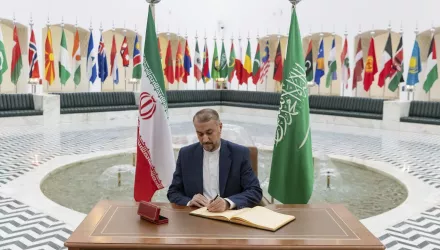How did it happen that, less than a year after Barack Obama convincingly won reelection, his every move as president now draws hoots and catcalls from nearly every point on the political spectrum?
Perhaps his Syria policy really is a story of “epic incompetence,” as Charles Krauthammer opined last week. Maybe he has an “unbelievably small” presidency, as Marc Thiessen commented, or that no one is afraid of him, as Ruth Marcus argued. And that’s just a sampling of opinion from my colleagues at The Post.
What’s puzzling about this latest bout of Obama-phobia is that recent developments in Syria have generally been positive from the standpoint of U.S. interests.
Obama has accomplished goals that most Americans endorse, given the unpalatable menu of choices. Polls suggest that the public overwhelmingly backs the course Obama has chosen. APost-ABC News surveyasked Americans if they endorsed the U.S.-Russian plan to dismantle Syrian chemical weapons as an alternative to missile strikes; 79 percent were supportive.
Yet the opinion of elites is sharply negative.
Here’s what I see when I deconstruct the Syria story:
●Russia has been drawn into a process of collecting and destroying Syria’s chemical arsenal. This has been a goal of U.S. policy for two years. It finally worked, thanks in part to Obama’s pledge to use military force to punish Syria if the Russians didn’t step up. In this messy world, there is considerable value in agreement by Moscow and Washington on the “soonest and safest” destruction of Syrian chemical weapons, with a timetable for implementation.
●The United Nations has taken new steps to affirm the international norm against the use of chemical weapons. The 41-page report delivered this week to Secretary General Ban Ki-moon is not a joke, as some predicted; it’s a surprisingly thorough, careful documentation of the horrific attack on Aug. 21. The report doesn’t directly accuse Syrian President Bashar al-Assad of using the weapons; assessing blame, unfortunately, wasn’t part of the U.N. mandate. But the evidence demolishes the absurd Russian-Syrian claim that the weapons were used by the rebels.
If you’re frustrated by a feckless and unreliable United Nations, you should be encouraged by a line in the opening paragraph of the report: “The international community has a moral responsibility to hold accountable those responsible and for ensuring that chemical weapons can never re-emerge as an instrument of warfare.”
●The United States and Russia have restarted their push for negotiations in Geneva toward a cease-fire and a political transition in Syria. Yes, it’s unfortunate that Assad is still in power, but is his hold really stronger now that he has been forced to admit he has chemical weapons and agreed to destroy them? I’m not so sure. The United States and Russia have agreed to meet in New York in late September with U.N. representative Lakhdar Brahimi to continue this political process. The Russians know that Assad must go eventually; they’ve now moved a little closer to a framework for beginning the transition. Suggestion: Assad’s official “term of office” expires next year.
●Amid all this diplomacy, Obama has pressed ahead with a covert program of training and assistance for the moderate Syrian rebel forces headed by Gen. Salim Idriss. My Syrian sources say that these CIA-trained commandos make a difference as they take the field: They begin to tip the balance away from the jihadist fighters associated with al-Qaeda, who (as the Russians correctly warn) are a dangerously potent factor in the opposition.
The showdown ahead between moderates and extremists was signaled this week when the al-Qaeda-linked Islamic State of Iraq and al-Shams announced a military campaign, emphatically code-named “Expunging Filth,” against two of Idriss’s brigades in Aleppo. This second Syrian war is coming, and even the Russians may end up relieved that the CIA is training fighters who can counter the jihadists.
The mystery is why this outcome in Syria is derided by so many analysts in Washington. Partly, it must be the John McCain factor. The Arizona senator is in danger of becoming a kind of Republican version of Jesse Jackson, who shows up at every international crisis with his own plan for a solution, sometimes through personal mediation (as with the Muslim Brotherhood in Egypt), other times demanding military intervention (as in Syria). Because McCain is a distinguished figure, he commands respect even when his proposals have no political support at home.
Not so Obama. He can propose what the country wants, succeed at it and still get hammered as a failure.
Ignatius, David. “Obama Criticized for Right Result On Syria.” The Washington Post, September 18, 2013




